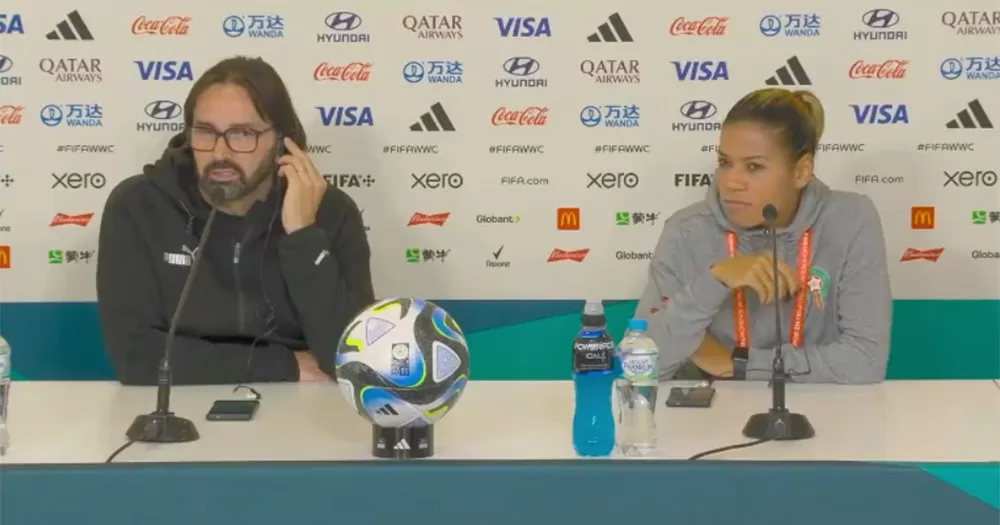The BBC has apologised after one of its reporters asked a player at the Women’s World Cup about her teammates’ sexualities. The question was posed to Moroccon captain Ghizlane Chebbak ahead of her side’s opening game of the tournament against Germany.
During a media briefing on July 24, the journalist said, “In Morocco, it’s illegal to have a gay relationship. Do you have any gay players in your squad and what’s life like for them in Morocco?”
A FIFA moderator interjected promptly, shutting the question down for being “very political” and asked that the conversation remain football related.
However, the reporter persisted, saying, “It’s not political. It’s about people, it’s got nothing to do with politics. Please let her answer the question.”
Declining to respond, Chebbak smiled and shook her head.
Morocco captain Ghizlane Chebbak’s almost in disbelief reaction to the question, says it all.
A completely unethical out of line question that poses safety concerns to the players he asking to be named.
Bizarre push followed.
pic.twitter.com/MKk84O774E— SHE scores bangers (@SHEscoresbanger) July 24, 2023
The broadcaster faced an onslaught of backlash in the aftermath, with the question being condemned by other reporters.
Shireen Ahmed of CBC Sports wrote that the journalist was “completely out of line,” adding, “Harm reduction matters and posing the question to the captain or coach was unnecessary.”
She continued: “Asking a player about her teammates and whether they are gay and how it affects them when you know it is not permissible is bizarre and out of line. The captain cannot out players nor comment on policy bc it could be dangerous for them too.”
Ahmed concluded by saying: “If reporting harms someone, it is not only unethical but dangerous.”
I was at this press conference. The reporter was completely out of line. Harm reduction matters and posing the question to the captain or coach was unnecessary. The question was waved off by a FIFA media officer moderating but it shouldn’t have been asked. https://t.co/csZ0McTq4k
— Shireen Ahmed (@_shireenahmed_) July 23, 2023
In Morocco, same-sex sexual activity is criminalised and punishable by fines of up to 1,000 dirhams, and prison sentences of between six months to three years. LGBTQ+ people in the country also have no protections from discrimination and face state-enforced censorship.
Speaking to CNN about the question posed during the Women’s World Cup briefing, a spokesperson for the BBC said, “We recognise that the question was inappropriate. We had no intention to cause any harm or distress.”
© 2023 GCN (Gay Community News). All rights reserved.
Support GCN
GCN is a free, vital resource for Ireland’s LGBTQ+ community since 1988.
GCN is a trading name of National LGBT Federation CLG, a registered charity - Charity Number: 20034580.
GCN relies on the generous support of the community and allies to sustain the crucial work that we do. Producing GCN is costly, and, in an industry which has been hugely impacted by rising costs, we need your support to help sustain and grow this vital resource.
Supporting GCN for as little as €1.99 per month will help us continue our work as Ireland’s free, independent LGBTQ+ media.
